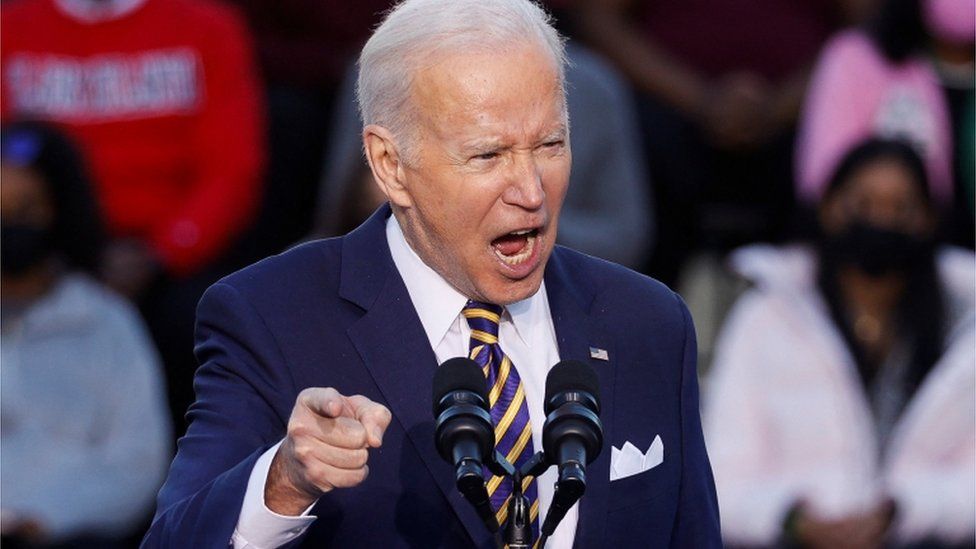
US President Joe Biden Pushes Overhaul of US Election Laws in Fiery Speech
US President Joe Biden has called for a historic change to Senate rules as he seeks to overhaul the country’s election laws.
In an impassioned speech, he said he supported changes that would allow his voting reforms to be passed without the support of opposition Republicans.
Misgivings from two senators in his party are hampering his plans, and no Republicans have backed them.
Currently, a majority of 60% is needed to pass most legislation in the Senate.
And with the upper chamber of Congress split 50-50 between the two parties, Mr Biden’s sweeping election bills are almost certain not to pass unless there is a change to that rule.
Such a change is unlikely, analysts say, as it would require the support of every Democrat in the Senate as well as the tie-breaking vote of the vice-president.
The bills – the Freedom to Vote Act and the John Lewis Voting Rights Advancement Act – passed the lower chamber, the House of Representatives, last year.
The former would introduce standardized, nationwide, voting rules as opposed to the current patchwork of state-by-state rules. The John Lewis Act, meanwhile, would require certain states to obtain government permission for any change to election regulations.
“To protect our democracy, I support changing the Senate rules, whichever way they need to be changed, to prevent a minority of senators from blocking action on voting rights,” the president said in a speech in Georgia on Tuesday.
“I’ve been having these quiet conversations with members of Congress for the last two months. I’m tired of being quiet,” he added, while banging his fist on the lectern.
Mr Biden said the push to pass the legislation was a “battle for the soul of America”, adding that the 60-vote rule – known as the filibuster – had rendered the Senate “a shell of its former self”.
For much of the Senate’s history unlimited debate was allowed, enabling opponents to block legislation. Supporters say it is a check on government power and forces administrations to seek consensus.
During World War One, rules were adopted to allow a two-thirds majority to bring debate to an end, but it was rarely used, and reduced to the 60-vote rule during the 1970s.

